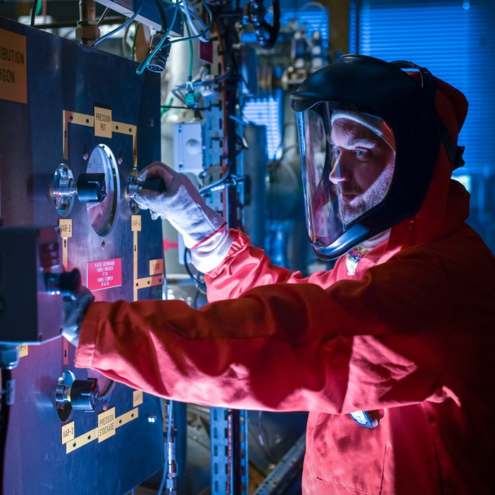
Our experimental platform called PAPIRUS is designed to qualify instrumentation and technological concepts specific to the R&D needs associated with the use of sodium and liquid metals.Today, PAPIRUS is the European reference platform in this field, especially for sodium-related technologies. It is part of an environmentally regulated facility (ICPE) known as the Technology Research hall (HRT).
This facility is used to design components and develop instrumentation for implementation in contact with liquid metals under extreme conditions. For this reason, our experts have developed test loops capable of studying all types of components under sodium, e.g. sensors, valves, pumps, tanks, flowmeters, etc. Our designers produce specific components, such as electromagnetic (EM) pumps needed to circulate liquid metals in pipes without any direct contact with the pump components. Leak detection systems and new types of sodium-gas heat exchangers are designed and built in our laboratories.
Reliable measuring instruments resistant to sodium are developed within our institute so they can be used to visualise and monitor components immersed in this medium that is both opaque and extremely hot.
Our experts are also perfecting specific processes for washing for metal components having been in contact with liquid metals (for maintenance), as well as processes for treating and destroying sodium during clean-up and dismantling operations. A key issue is to develop safe processes that allow us to safely manage the sodium reactivity; calculation tools have thus been developed and qualified to simulate these reactions (sodium-water and sodium-fire) and their impact in degraded conditions. The ‘Sodium School’ was set up in 1975 at a time when the sodium-cooled fast breeder reactor technology was being developed. This school is tasked with sharing the knowledge and know-how needed to safely operate the systems and instrumentation associated with sodium test facilities, as well as giving courses on the specific risks associated with handling sodium and liquid metals (due to their reactivity with many chemical elements, including water and air)